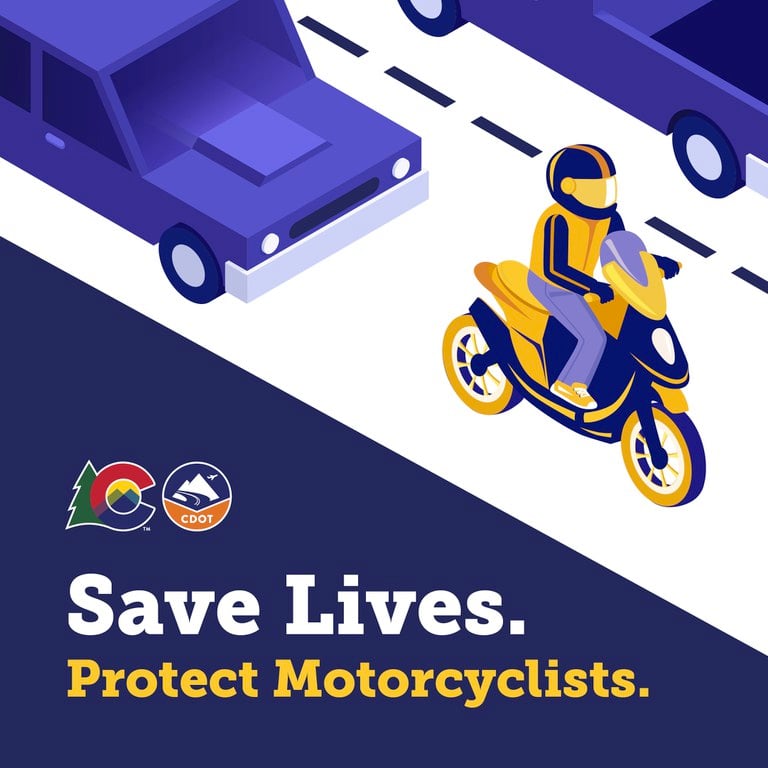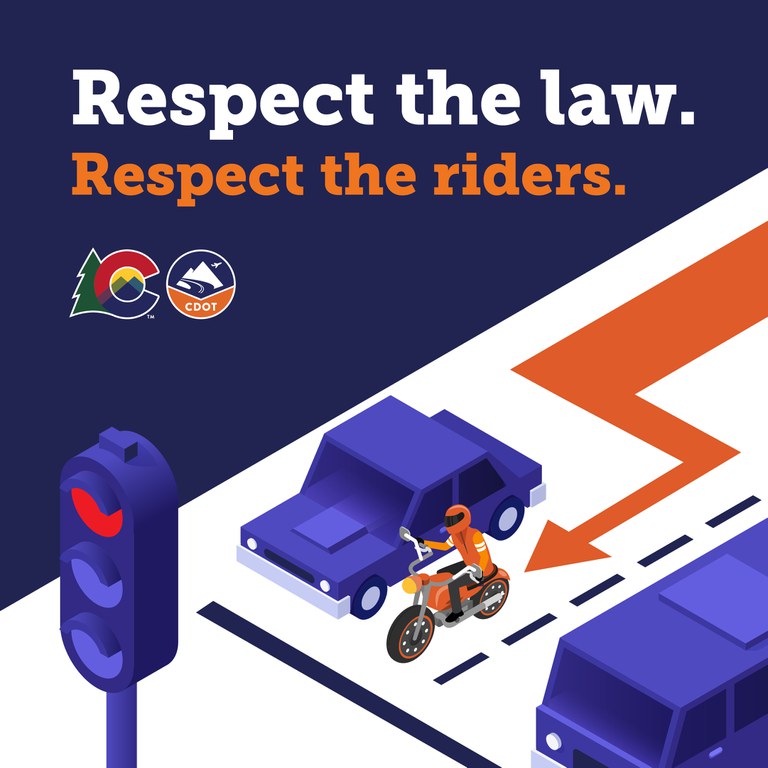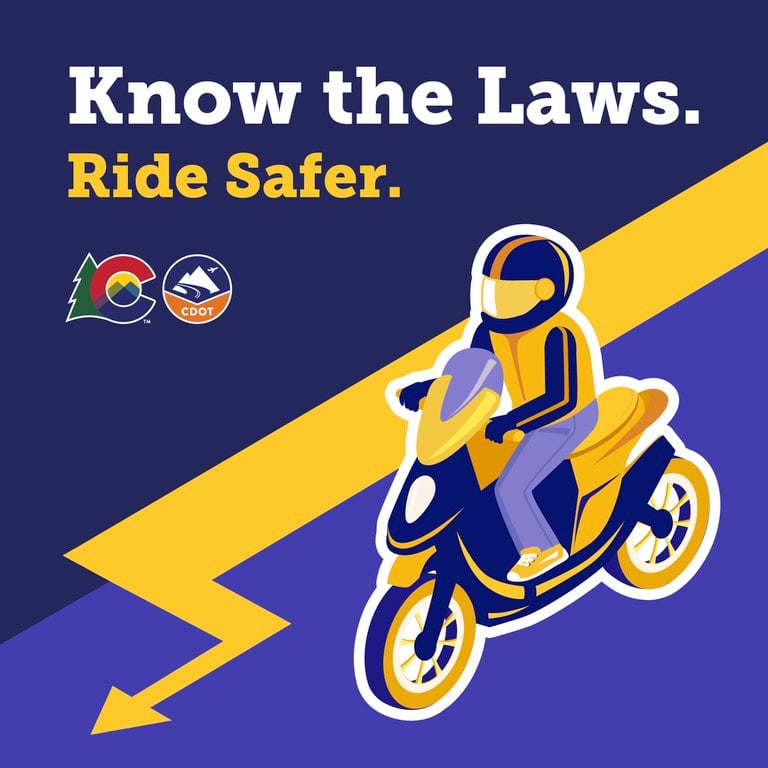Motorcycle Lane Filtering
Lane filtering is now legal in Colorado

Colorado has passed a law allowing motorcycles to pass between vehicles stopped on the roadway and traveling the same direction as the rider. The law took effect in 2024 and has these conditions:
- The motorcycle passes on the left of the vehicle in front of them.
- The other vehicles are stopped and traveling the same direction as the rider, such as in stopped traffic or at a red light.
- The lane is wide enough to pass safely.
- The motorcycle, when passing, does not exceed 15 miles per hour.
- When the stopped vehicles begin to move, the motorcyclist must reenter the flow of traffic.
A motorcycle rider may not overtake or pass:
- On the right shoulder.
- By crossing over the center line into oncoming traffic.
Lane filtering is not the same as lane splitting. Lane filtering allows motorcyclists to safely navigate through stopped traffic. Lane splitting, which remains illegal, involves riding between lanes of moving vehicles.
Motorcyclists: Filter Safely
Five rules must be followed to filter:
- If a rider wants to pass, traffic must be at a complete stop.
- The lane must be wide enough to fit the vehicle and motorcycle while passing.
- The motorcycle must go 15 mph or less.
- The rider must pass safely and control the motorcycle.
- The rider must pass on the left and not enter the oncoming traffic lane.
Riders should always prioritize safety and be mindful of their surroundings. It is often impossible to predict the actions of other vehicles. Motorcyclists should always ride sober, wear protective gear and stay focused on the road. Colorado law requires a valid motorcycle license or a motorcycle endorsement on your existing driver’s license to legally operate a motorcycle on public roads.
Share the Road: What Other Vehicle Drivers Need to Know
Traffic safety is a shared responsibility. Drivers should understand that motorcycle riders are more exposed and vulnerable to unexpected road hazards. Lane filtering is one way for motorcyclists to protect themselves.
Treat riders with courtesy as they practice lane filtering.
The New Law Could Save Lives
Colorado’s lane filtering law could save motorcyclists’ lives. Lane filtering reduces the chance for motorcyclists to be rear-ended by a car or truck. Collisions from behind can cause serious injury or kill motorcycle riders.
CDOT will complete a report on lane filtering by the beginning of 2027. The report will compare data from before and after the effective date of the law and include information on motorcycle rear-end and side-swipe crashes.
Additional Resources
Lane Filtering Stakeholder Flyer
A printable flyer covering what you and your networks need to know about lane filtering, including a full list of frequently asked questions. Click here to download the lane filtering stakeholder flyer.
Audio and Radio Spots
CDOT produced several audio recordings to quickly educate listeners on Lane Filtering. To download the audio files and transcripts, click here.
Social, Website and Newsletter Content
CDOT has pre-drafted social media posts, newsletter articles and downloadable graphics that are available for repurposing. Click here to download the social media and website toolkit.



Frequently Asked Questions
August 7, 2024
Yes, as long as you do not cross the centerline, pass on the left, your speed is 15 mph or below, and vehicles are stopped.
Motorcycles can work their way all the way to the front as long as the other vehicles traveling in the same direction remain stopped while they pass. When stopped vehicles begin to move, the motorcyclist must reenter the flow of traffic.
It’s easier for drivers to see riders approaching on the left side.
Motorcycles should only pass if they can do so safely within the same lane. The shared turn lane may have oncoming traffic and should be avoided when lane filtering.
The law states that the road must have lanes wide enough to safely pass, so do not lane filter if there’s not enough room.
It’s up to the rider to assess each situation and determine if the conditions are safe and legal to filter — it's an option, not a requirement to filter.
The law applies to motorcycles. According to Colorado law, a “motorcycle is a motor vehicle that uses handlebars or any other device connected to the front wheel to steer, a seat the rider sits astride, and is designed to travel on no more than three wheels; except that the term does not include farm tractors, low‑power scooters, or low-speed electric vehicles.” In this case, three-wheeled motorcycles, Vespas, and mopeds would be permitted to lane filter, but e-bikes and electric scooters would not.
